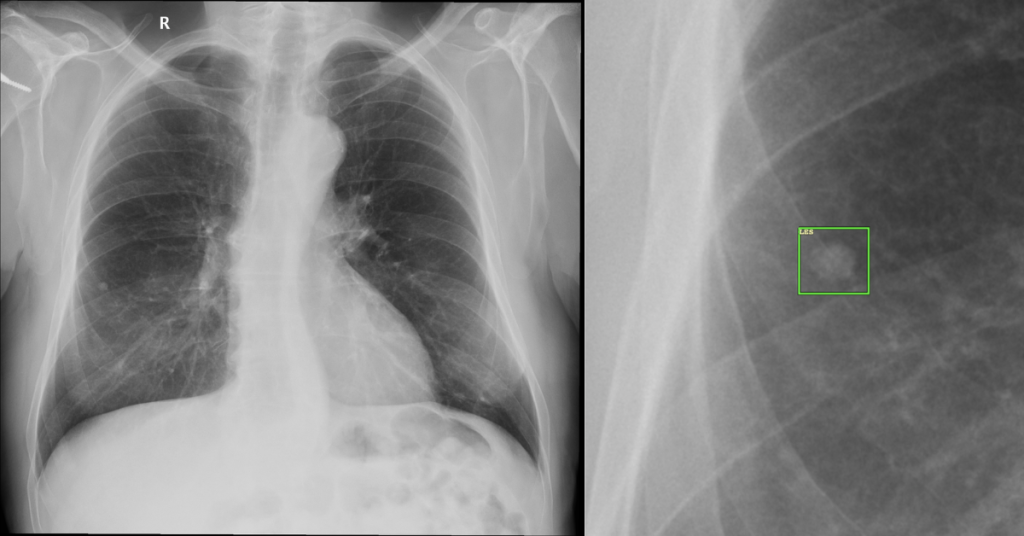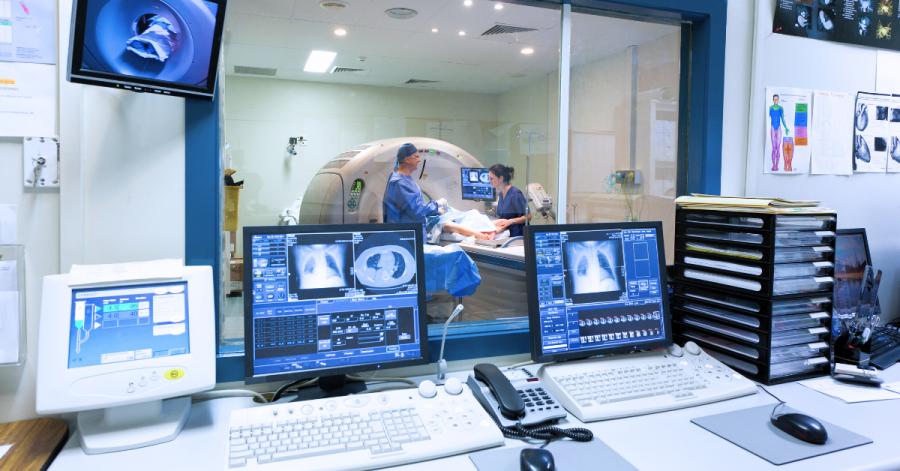Cancer has posed a formidable challenge to both medical professionals and population throughout history. However, with the gradual advancements of artificial intelligence in healthcare, the field of oncology is awaiting a promising ally. With advanced algorithms and intelligent machines, researchers and clinicians are now able to unlock new insights, analyze vast amounts of data, and make more accurate decisions.
In this article, The Recursive will explore the intersection of AI and cancer diagnosis and treatment, focusing on the advancements reshaping the future of oncology. Insights into the topic were provided by Daniel Kvak, the CEO of Czech AI startup Carebot, developing a solution for computer-aided diagnosis in chest X-ray images.
Traditional cancer diagnosis and treatment
According to the World Health Organization, cancer accounted for nearly 10 million deaths in 2020 (close to one in six deaths), representing the leading worldwide cause of death. The most common types of cancer are breast, lung, colon and rectum, prostate, skin, and stomach, with lung cancer being the most deadly. However, the disease can be cured in many cases when detected and treated at its early stages.
Traditional methods of cancer diagnosis include laboratory tests (blood, urine, and other body fluids), imaging tests (CT scan, X-ray, MRI, PET scan, and others), and biopsy when an abnormal tissue sample is extracted and tested. If cancer is detected, some of the most common types of cancer treatment are surgery, chemotherapy, hormone therapy, or bone marrow transplant.
However, these methods present several challenges, including human error, time-consuming analysis, and subjective interpretation that may affect the efficiency or accuracy of the treatment.
The role of AI in cancer diagnosis and treatment
With an increasing need to make cancer diagnosis and treatment more efficient, affordable, and personalized, AI is set to play an important role in oncology, experts shared with Targeted Oncology.
Daniel Kvak, the CEO of Carebot, commented for The Recursive: “Applications involving machine learning are being widely adopted today. At Carebot, we design systems for image processing (X-ray, CT, mammography). Other companies or research projects are working on, for example, drug design, treatment prognosis, or individualized care.”
Several use cases of artificial intelligence in oncology include:
- Imaging and detection: AI can analyze medical images, such as mammograms or radiology scans, to accurately identify suspicious lesions or tumors that could otherwise go unnoticed. AI-powered imaging is used to diagnose, for example, breast, prostate, or lung cancer.
- Personalized treatment: By analyzing vast amounts of patient data, including genetic information, medical records, and treatment outcomes, AI algorithms can help predict a patient’s response to specific treatments.
- Drug discovery: Considering vast amounts of biomedical literature, genomics data, and molecular structures, AI algorithms can identify potential drug targets, predict drug efficacy, and optimize drug design.
However, it is essential to state that many adoptions of AI technologies in oncology are still in the early tests and are yet to reach the next testing phase to be ready for real applications, notes the US National Cancer Institute.

“Artificial intelligence is currently experiencing a great boom. However, the foundations of computer-aided diagnosis were established in the 1970s. The field has come a long way since then, but the adoption of modern technology in healthcare remains cautious,” says Daniel Kvak.
Benefits AI presents to oncology
“From faster detection of suspicious lesions to more precise targeting of treatments that can extend a patient’s life, there are many benefits that AI can offer patients and doctors,” says Daniel Kvak.
“The most interesting advantage we have already been able to test in practice is the improvement in cancer detection rates between differently experienced doctors. In a study we presented at the European Congress of Radiology in Vienna, we compared the detection rates of lung cancer patients between AI and five radiologists. For junior radiologists, the success rate was only 29%, while for experienced primary radiologists, it was 81%, and AI found cancer in 91% of cases,” continues Daniel Kvak.
“Above all, the future lies in the physician’s and AI’s collaboration, which serves as a supporting tool. This is when the best results can be achieved,” adds Daniel Kvak.
Potential challenges of utilizing AI in cancer diagnosis and treatment
According to a recent study on AI in oncology, one of the main challenges of AI models is the lack of structured cancer-related health data and standardization across healthcare systems. Another limitation represents the perceived difficulty of running an AI-powered study. As a reaction, more universities and academic medical centers are adding the AI variable to their educational cores.
Challenges are also presented in data standardization, reproducibility, bias, and maintaining accuracy over time. Biased sampling and underrepresenting diverse populations in training data can lead to poor model performance. Careful selection of clinical endpoints is crucial to avoid socioeconomic biases.
Data drift and security concerns also impact the reproducibility and privacy of AI models.
As a result, collaboration between regulators, AI scientists, engineers, and medical practitioners is crucial for developing comprehensive regulations that balance innovation and patient protection.
Future of AI in oncology
Taking into account the ongoing advancements in technology, the integration of AI into cancer diagnosis, treatment, and research holds great promise for improving patient outcomes and transforming healthcare delivery.
“One of the areas which I consider promising is generative AI. Using generative models, we are able to verify how a proposed AI system will perform in non-standard situations, e.g., in atypical tumors. We can use them to minimize bias, predict appropriate therapies, and analyze potential problems. But deploying AI into standard clinical practice and tracking real-world evidence is fascinating in itself,” Daniel Kvak tells The Recursive.







